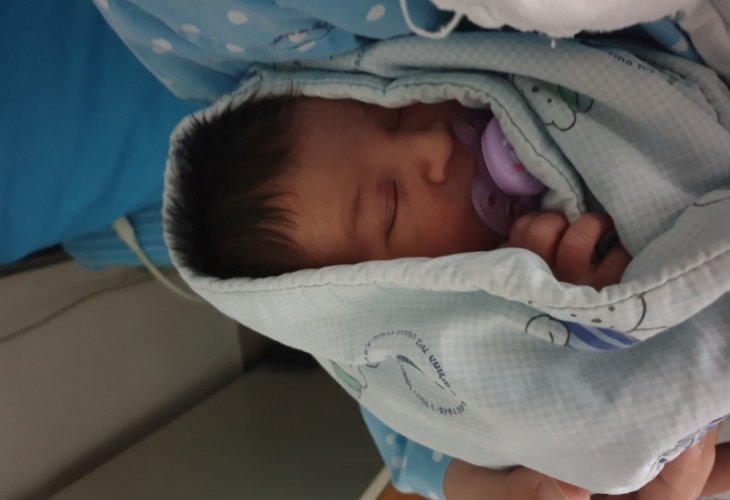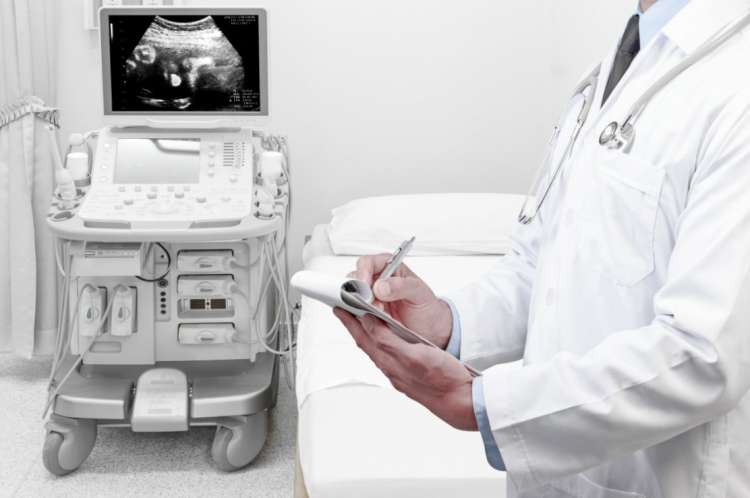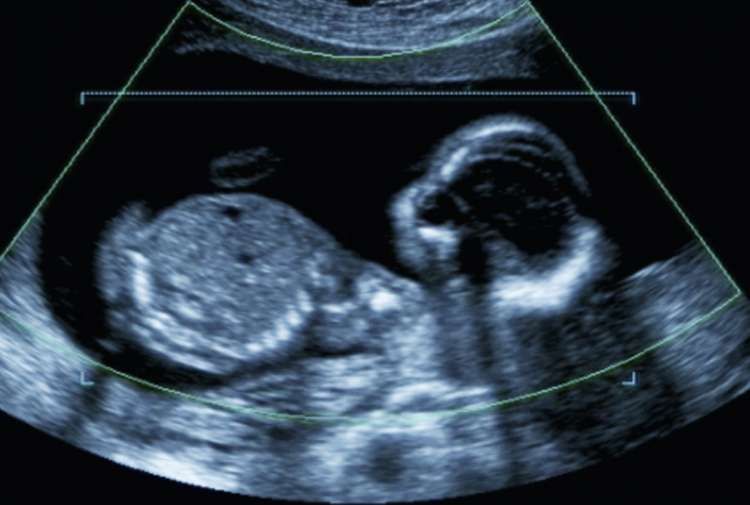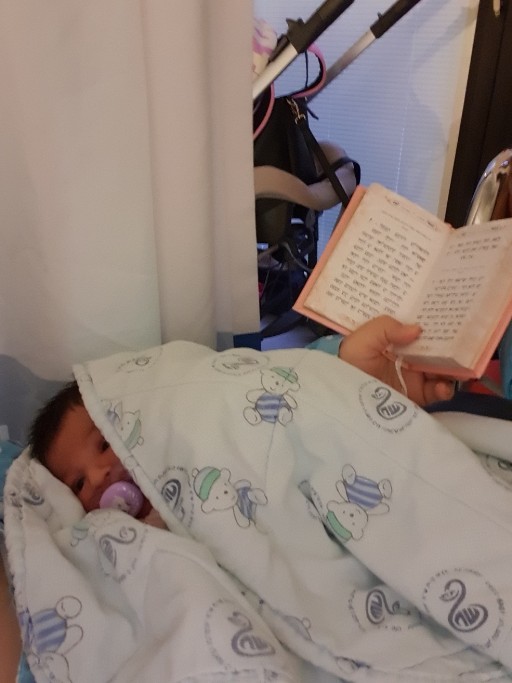"After a Prolonged Examination, Doctors Told Me: 'The Baby is Missing Part of the Brain'"
Dorine Cohen heard all the possible warnings from the doctors, who said her daughter would be deformed and disabled, her brain would be damaged, and she wouldn't survive birth. "Those were months of tears, a black hole in my heart," she recounts. And what about the baby today?

"I will never forget the day when it all started," says Dorine Cohen, mother to three-month-old Abigail. She refers to the tumultuous journey she and her husband have experienced in recent months as they awaited their daughter's birth.
"It was a standard day," she recalls, "I was in my sixth month of my second pregnancy. We got into the car with our eldest son, and then boom! A crash, an ambulance, a hospital... There was an accident, but thank God they checked at the hospital, and the fetus seemed fine, with movements. Despite everything, they kept me hospitalized to ensure there wasn't a placenta detachment."
However, if Dorine thought the storm was behind her, it became clear that the drama was just beginning. "The next day, they asked me to undergo an extensive scan to verify there was indeed no detachment. The doctor tried to examine the fetus, and at some point, she told me: 'There's something here; I'm going to call the senior doctor to verify the matter.' The doctor arrived a few minutes later and began examining and pressing for over 40 minutes. Finally, he called another expert who told me firmly: 'Ma'am, your daughter has enlarged ventricles in her brain at a high level and a shorter than usual corpus callosum. This means she will be born, God forbid, you know, with severe retardation and paralysis; she'll be deformed. Most likely, even if she reaches birth, she won't survive it.' Then he switched to practical terms: 'At this stage, we recommend terminating the pregnancy. It's not something bombastic, rather a very simple procedure, quite similar to a normal birth; only here you'll return home empty-handed.'"
 (Photo: shutterstock)
(Photo: shutterstock)
Black Hole in the Heart
How did you feel about this news?
"I was with my husband, and we both felt in complete shock. We couldn't understand how nothing was seen until now in any test or scan. We asked to continue looking into the matter further, and so we were referred to twenty more departments and appointments, with paperwork and forms, our heads bursting and tears endlessly falling. After several days of terrifying warnings and dreadful forecasts, we contacted our rabbi and asked him what to do. He guided us to stop the investigations and believe that everything would be fine. We returned home with our heads full of thoughts and fears. We couldn't believe we had entered a cycle of those hard stories, where a miracle might happen, but it might very well not, and all we could do was believe and understand this was another trial we had to overcome. Meanwhile, we sent a letter to Rabbi Israel Abargel, who advised us to check the tefillin and enhance the mitzvah, as the brain is precisely where the head tefillin are placed. We immediately went and bought premium tefillin for the baby's healing. Meanwhile, we stopped the tests and continued with our routine as much as possible, with simple faith that Hashem runs the world and we do not interfere with His actions."
In a sharp turn, Dorine notes that a week after the accident, they were invited to meet with the Child Development team handling their eldest son, as they had applied to place him in a language kindergarten. "We arrived at the meeting, only to discover the neurologist and psychologist with stern faces," she recalls, "They dropped the bombshell on us and informed us that the child cannot be sent to a language kindergarten because he is on the autism spectrum. Although he functions very well, autism is still autism. I have no words to describe the shock and fear. We had never considered that direction; it never occurred to us that our child was autistic. He might not speak fluently, but he forms sentences and has made immense progress in other areas. But the staff insisted that there was a diagnosis. From that moment, sleepless nights were compounded with worries about the child and a race against time to secure a suitable framework, ensuring that we wouldn't waste precious time. Thus, I entered the seventh month after an accident with pain, a heart unable to contain the news about our eldest, and the unknown regarding the little one. I constantly asked myself how to prepare for such a birth when they told me the daughter would emerge deformed and impaired, and the black hole in my heart only grew larger. How do we even continue from here? Everything seemed dark, pitch-black..."
What really strengthened you during such times? What gave you strength?
"Only faith," Dorine says, "We wholeheartedly believed in Hashem, leaned on our Father in Heaven. There was a feeling that no one in the world can help you – not doctors, not friends, not family. Absolutely no one, only you and the Creator of the world. You cast yourself on Him with your eyes shut."
Dorine pauses for a moment and takes a deep breath. It's evident that recalling those days is difficult for her. "That was a period where tears accompanied me everywhere," she recounts, "From every rabbi, I heard the words 'Hashem does not burden a person with more than they can bear.' It strengthened me, but ultimately the trial was only ours, and the pain was immense."
Part of the trial, she says, was in not going through additional tests. "The gynecologist constantly pressured me to undergo tests, but we adhered to the rabbi's instruction not to take unnecessary steps and tests that wouldn't help the fetus. Eventually, I scheduled an appointment at the hospital, but only in week 39, for a focused examination that would assist the team during delivery in knowing how to act and what to expect. We understood this was needed professionally, and there was a benefit for the baby."
 (Photo: shutterstock)
(Photo: shutterstock)However, such a reaction from the doctors was unexpected by Dorine. "When I arrived for the examination, the doctors began to reprimand me: 'Why did you schedule the examination so late? You're about to give birth! I hoped to leave this examination calm and reassured, but ultimately the doctors only stressed me more. They told me again there were enlarged ventricles in the brain, and also noted that the corpus callosum wasn't visible at all, which means it's neither short nor long, but simply nonexistent in my baby's brain."
Dorine's voice trembles as she mentions: "There's no way to describe the feeling when I realize part of my baby's brain is missing. Throughout the examination, I felt her moving inside me, not understanding how this was possible. Tears welled up in my eyes again, and I prayed to Hashem to have mercy and cease testing us further."
After three hours of examination, the doctors informed Dorine she needed to return the next day for an urgent MRI, which would provide more clarity. "I left the hospital, not before the senior doctor reprimanded me: 'I don't understand how you decided on your own to continue such a pregnancy. How do you expect to manage a baby with severe health issues when you already have a child on the spectrum at home?'"
Dorine returned home, planning another visit for the following day's examination. "Many are the plans in a human heart, but it is the Lord’s purpose that prevails," she remarks. "That very night, perhaps due to the examination or fear, starting from midnight, I began to feel contractions. When I woke up in the morning, I was timing contractions nine minutes apart, realizing we had to rush to the hospital to make it in time for the examination before delivery. When we arrived, I was in excruciating pain and experiencing contractions every five minutes. When we asked the doctors to proceed with the MRI, they didn't understand what we wanted, only replied: 'Ma'am, you're about to enter the delivery room, no examination.' So we remained with question marks, not knowing what to expect. Would the baby be born without a heartbeat as they said? Would she be deformed?"
The feeling that guided Dorine during labor was faith more than anything else. "How much I prayed during this birth," she recalls tearfully, "With every contraction, I cried out to Hashem to have mercy and perform a miracle beyond nature. Simultaneously, my husband reached out to every rabbi we know, pleading for prayers. We even sent messengers to Uman and the Baal Shem Tov. Both of us felt that 'even if a sharp sword rests upon a person's neck, they should not despair of mercy.'"

"Then the Baby Began to Cry"
The moments of birth, according to Dorine, were filled with fear and dread, but also great faith and closeness to Hashem. "We constantly heard from neighboring rooms the cries of more and more babies being born. I longed at those moments to hear my baby's cry and understand that everything was okay. Something that seemed so natural to other mothers, while for me, it was a wish, uncertain if it would come true."
After hours in the delivery room, the midwife informed Dorine that in a few more minutes, the baby would be out. "Are you ready?" she asked. "Those were thrilling moments," she remembers, "I prayed for everyone. I knew it was a significant time for prayers, I prayed, and tears didn't stop falling, the heart cried out, and poof – there, the baby was out, and I heard her cry, the one I had longed for."
And what was her condition?
"Of course, that was the question that troubled us non-stop. Since a pediatrician was present at the birth, she informed us immediately that the baby had an Apgar score of 10, and when I held her in my arms, she opened her eyes and gave me a look I will never forget, conveying the message: 'Mom, don't worry, I'm here.' In the following days, they conducted several more tests to check her brain status. She also underwent a CT scan, which revealed that the ventricles weren't enlarged, and the EEG was normal. She was born with a complete absence of the corpus callosum, but that is something many people manage without. When we left the hospital with the documents in hand, we couldn't stop getting emotional. Everything was checked and came out perfect. Hearing is normal, vision is normal, everything was as it should be, and the heart finally began to fill with a bit of relief after such an intense period. Those were enormous moments when we realized how much Hashem is the only one who runs the world, and not any doctor or professor. Only the blessed Lord decides on our health and what will be with us and our children."
* * *
Dorine concludes her story by noting that Abigail is currently three months old. "She eats, breathes, cries, moves, responds, looks, and hears. The regular check-ups are absolutely fine, thank God. We never stop thanking for the miracle done for us every single day and pray that the miracles continue and that any strength people gain from our story will lead to the complete recovery of Abigail, daughter of Dorine," she concludes with great hope.
Considering an abortion? Know someone at a crossroads?
Dear mother, we are here, in the Ima Department of Hidabroot, to help you. Give your child another chance, don't end their life. For details and contact, free of charge: Contact the Ima Department – Free assistance, consultation, and guidance for women to prevent abortion: Tel 073-2221333, Mobile 052-9551591. Email kalina@htv.co.il

